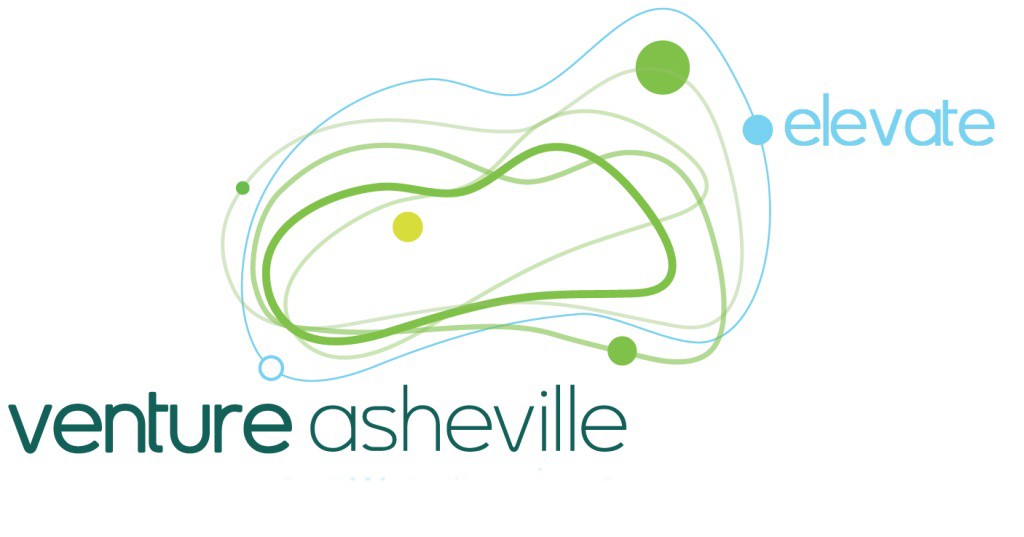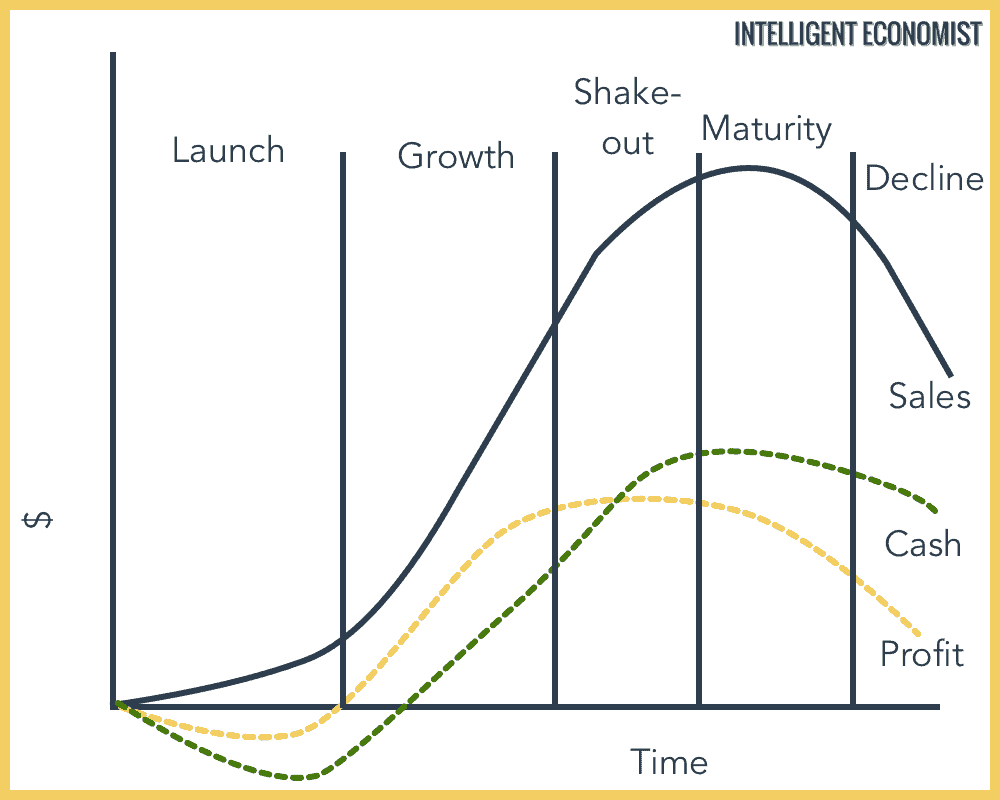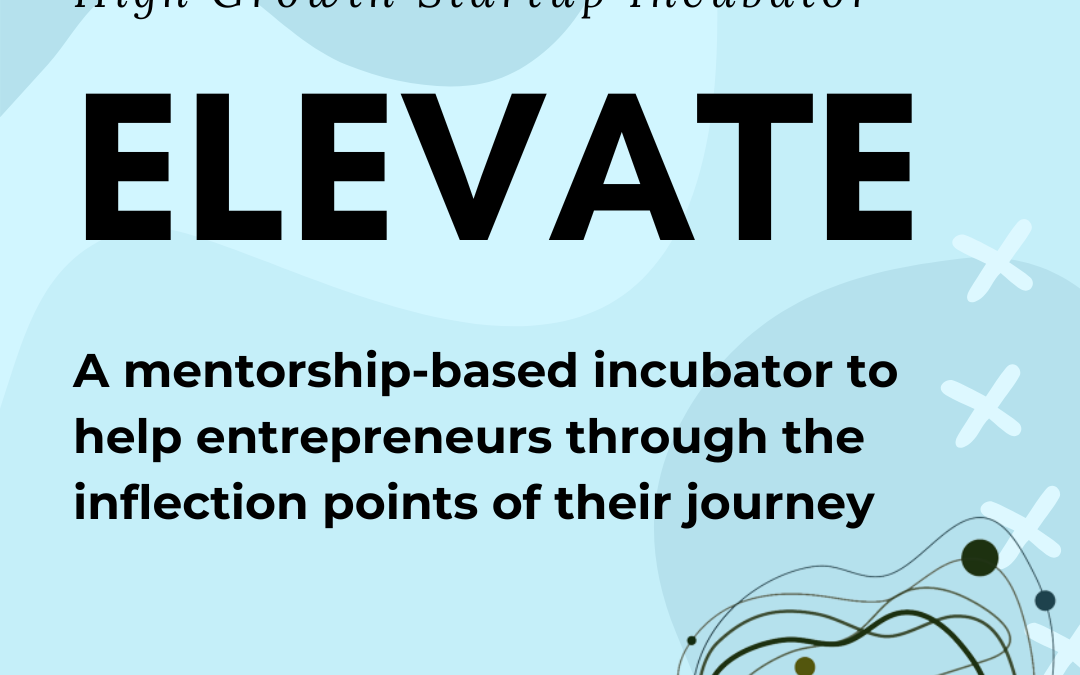Welcome to our series taking a Deep Dive into Venture Asheville. You can find all the posts in this series linked here:
How Venture Asheville Built a $150M Startup Ecosystem; A 7-Part Series
Let’s dive in, starting with the flagship program responsible for creating a $150M impact in Asheville, Part 2: Elevate, a mentorship-based incubator.
__________________________________________________________________

Elevate is the backbone of our program, of our community, and is the main focus of staff’s time and energy. Qualifying companies meet the following criteria:
- Have a scalable business model
- At least 1 full-time founder on the business
- Live or work in Asheville-Buncombe or Haywood County
- Product is already launched and in market (might not have revenue but you have something to sell)
These are not idea stage companies, we are not doing idea validation or customer discovery. If you think about a business life-cycle, Elevate is your first key inflection point, your growth stage.

To participate in Elevate as a founder or mentor, you apply, get interviewed by multiple stakeholders, and you must go through our onboarding and training course. We put our training online in a course to increase consistency of the onboarding and free up staff time. Online training also gives the community a place to host documents, track completion, etc… It was an upfront investment but streamlines the whole onboarding process, and means a founder or mentor can enroll at any time.
The following section explains Elevate to new members and will offer background, purpose, and structure. While part of the training program, it will offer you an understanding of how the program matured, it’s various components, and core values.
The Elevate Program
Elevate, Venture Asheville’s flagship mentorship program, is a critical component of the Economic Development ecosystem and is the cornerstone of the Venture Asheville initiative.

Let’s break each of the Elevate components down into more detail:
“Elevate, Based on the MIT Venture Mentoring Service”
M.I.T. is one of the top two or three schools in the country for producing entrepreneurial talent. To be in good standing and consistent with the MIT model, the staff visits MIT for training as needed and we bring in their trainers to work with our mentors every year or two.
“A Long-Term Relationship”
There’s no time-limit on your participation in Elevate as long as you are working toward milestones and goals. Some companies participate for six months; some are now going on three years. The average startup is with us for about 12-2 months.
“You Build with a Team of Mentors”
Team-based mentoring is the secret sauce that makes the MIT VMS so special. We’ll be putting three experienced mentors on your team. As you discuss the issues on your agenda, you’ll find that the interplay between mentors is where the magic happens.
“To Help You Through the Inflection Points of Your Growth Curve”
In Elevate, we want you working on the meaty parts of your business. Don’t be afraid to bring the big issues that keep you up at night. If you’re not growing and going into maintenance or execution mode, it may be time to graduate from the program.
“Elevate, a long-term relationship you build with a team of mentors to help you through the inflection points of your growth curve” didn’t fall out of an AI chat-bot. It evolved from years of work from a number of individuals. The following section is a history of Venture Asheville’s Elevate. It may be more detail than you are looking for. If so, just skip ahead to the next section. Part 3: The MIT Venture Mentoring System
History of Venture Asheville’s Elevate
Elevate began simply as a mentorship program and evolved into a driving force of the Asheville ecosystem.
Venture Asheville’s value proposition is to build entrepreneurs and get startups funded. We do this through our three core initiatives: mentorship, financing, and events.
In 2015, the EDC Board of Directors launched Venture Asheville as an innovative expansion of the regional AVL 5×5 Strategic Plan, funded by the Asheville Area Chamber of Commerce, Buncombe County, the City of Asheville, and over 100 private sector investors in the AVL5X5 Campaign.
“From the outset, the programming of Venture Asheville was laser focused on filling critical, early-stage funding gaps, providing world-class mentorship and streamlining access to the many skilled partners and agencies that support entrepreneurship here in the Asheville region,” shared Jay Richardson, EDC Board Chair.
In 2017, NC IDEA funded Venture Asheville with a $100,000 Ecosystem Grant to launch the Elevate incubator, a structured, mentorship-based program modelled on the MIT Venture Mentoring Service (MIT VMS). Elevate has since grown into a crucial part of the entrepreneurial ecosystem in the Asheville Area. Ben Redding, CFO of NC IDEA, recognized the success of the program, noting it remains among the top 10 percent of high performing entrepreneurship development programs funded in North Carolina in the past decade.
Upon the launch of Elevate, the focus was appropriately narrow. That meant focusing on tech startups, ideally in B2B SaaS categories. The prevailing theory is that these startups raise capital, create high-paying knowledge based jobs, and seek exit events. Compounded, these startups create massive wealth creation events, pull capital out of our wealthy retiree class, and diversify the economy.
The social fabric at that time was determined to model after other great startup cities like Austin and Boulder, for their similar cultures. Remember, this was a time when everyone was trying to name their ecosystem some version of Silicon Valley: Silicon Harbor, Silicon Bayou, Silicon Mountain, Silicon Holler, etc… At this time, in 2023, current national social fabric, mostly vilifies that model in the wake of the a cultural fallout from Twitter, WeWork, Theranos, FTX, etc… Big Tech is facing the same backlash Big Banks did during the Great Recession. While not pertinent to this series, it does inform the cultural shift in values that moved populations out of the West and Northeast into the South and East throughout and after the pandemic.
Going back to 2018, Elevate began to broaden the criteria of eligibility from tech-focused startups to tech-enabled startups. Meaning, startups could be in apparel, CPG, Food and Bev, even Outdoor Recreation if the business model is one that scales through using technology. A great example is Moonlight Makers, who began selling t-shirts, dish towels, magnets, and stickers at festivals out of a blue mini-bus and dove into e-commerce to become the top seller on Amazon Handmade and have sold the “internet’s favorite dish towel” based on sales volume.
“Elevate was a game changer for us,” said Claire Watson, Co-founder of Moonlight Makers. “As two busy moms juggling working in our business full-time, nearly 30 employees and six kids between us, it was hard to find the time and space to work on our business. But Elevate gave us the support we needed to focus on higher-level issues and connect with mentors who could help us achieve our goals. Thanks to the guidance we received, we were able to become the top seller on Amazon Handmade. We’re so grateful to the Elevate community for helping us get to where we are today.”
Over the years, as the eligibility criteria evolved, so has the program of work. Elevate began as a chapter of MIT’s Venture Mentoring Service, using expert mentors to guide founders through monthly meetings. The team at Venture Asheville expanded Elevate to 4 components, each to be detailed in the following sections:
- The MIT Venture Mentoring System
- Peer Facilitated Mentorship
- TheE13 and Experience Portfolios
- Engaging an Event-Driven Ecosystem
For founders to remain in good standing in this incubator, they must submit metrics quarterly. These metrics include: Revenue, Capital Raised, New Hires, Salaries, and Experience Portfolio Items. Strict adherence to reporting metrics is crucial to validating the work of the incubator. Incubators, accelerators, Coworking spaces, nonprofits are all metric-driven organizations. Building reporting into the expectations of the culture allows the staff to easily validate the ROI of the incubator.
Hey you made it! More information than you wanted? That’s OK. We’d rather give you more detail than less in a blog. If you want hot takes and quick notes, you can find that on social media. This series is really designed to take you by the hand and share what makes Venture Asheville tick.
The next section profiles the MIT Venture Mentoring Service, the cornerstone of the incubator.
How Venture Asheville Built a $150M Startup Ecosystem; A 7-Part Series
- Setting the Scene for a Small City Startup Hub
- Elevate, a mentorship-based incubator
- The MIT Venture Mentoring System
- Peer Facilitated Mentorship
- TheE13 and Experience Portfolios
- Engaging an Event-Driven Ecosystem
- Looking Beyond the $150M Impact

